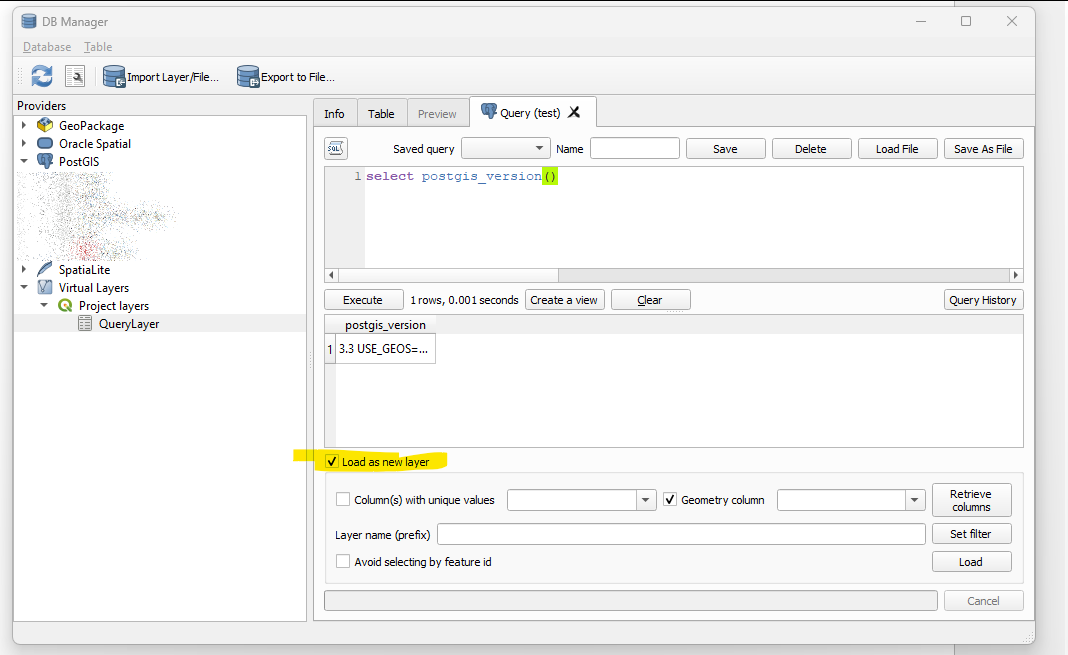i've defined the following SQL statement in the query editor of qgis' db manager:
select sd.fk_polyg, count(sd.fk_polyg), STRING_AGG(DISTINCT sl.typ, ', ') as concat_typ
from schaden_stein_detail as sd
join schaden_lookup as sl on sd.s_id = sl.id
group by sd.fk_polyg
order by STRING_AGG(DISTINCT sl.typ, ', ') ;
there is one single polygon dataset (which is not part of that sql-statement). that dataset is referenced in the FROM part: "schaden_stein_detail"-table (i.e. damage details) by a foreign key
the code groups damage details from the table "schaden_stein_detail"by the foreign key field "fk_polyg" and concatenates any existing detail entry into a text field aliased as "concat_type" (where in case of double entries just one single value is returned by utilizing the DISTINCT parameter). remark: the join-part is just for accessing the text-values of the damage types that are stored in the lookup-table "schaden_lookup" / field "sl.typ"
the statement works fine in qgis db managers SQL editor. but it returns a "no such function: STRING_AGG" in "Data Source Manager / Virtual Layer" (of course the schema-names of the above SQL-statements are not used in the virtual layer definition!)
I thought STRING_AGG was a standard PostgreSQL function. any ideas about that?

